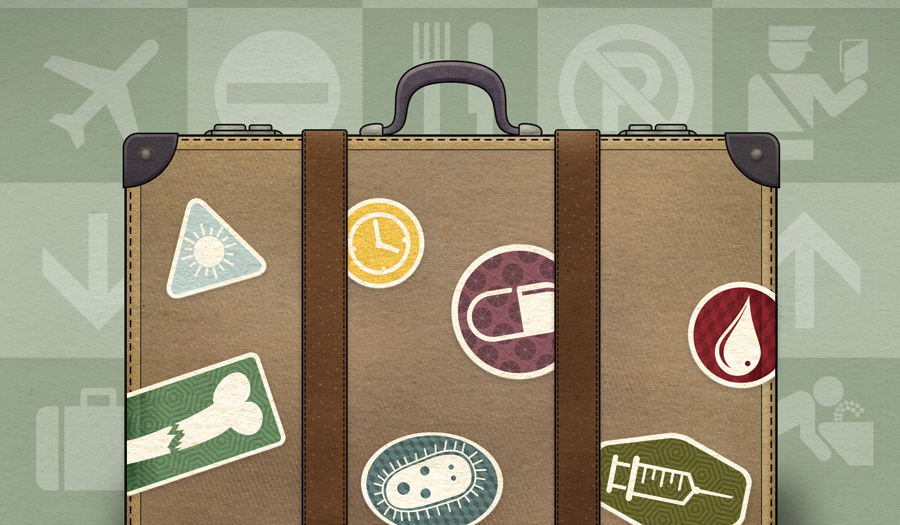 View / Download pdf version of this article
View / Download pdf version of this article
Travellers requiring medical advice should consult a health professional at least six to eight weeks before departure.
The first goal is to establish the traveller’s itinerary and determine any risks they are likely to encounter. Remind
people that their travel insurance needs to cover pre-existing conditions and any planned activities; supplementary insurance
may be required. As a rule, people with unstable medical conditions should not fly and long-term conditions need to be
well managed before departure. Travellers taking prescription medicines require sufficient supply to cover the time that
they will be away and a letter outlining their current medicines, any allergies and their medical history. Guidance on
vaccination, malaria prophylaxis and as-required medicines depends on the region the person will be travelling in, their
immunisation status, general health and the length of time until departure. People crossing multiple time zones who are
taking medicines dosed at specific times, e.g. insulin or warfarin, may need advice on how to temporarily adjust their
regimen.
If a visitor to New Zealand requires a medicine that is unavailable here it may be necessary to research an alternative.
A database containing information on medicines used in 185 countries is available from:
www.drugs.com/international. To
ensure continuity of care, give the patient a printed copy of their consultation notes and if appropriate, organise a
follow-up consultation. Febrile illness in a patient who has recently visited a country with a high incidence of infectious
disease is a potential red-flag: establish the patient’s immune status and possible exposure, consider whether precautions
should be taken to minimise transmission and have a low threshold for contacting a medical officer of health or infectious
diseases specialist.
 For further information, see: “Travel consultation essentials: for departures
and arrivals”, BPJ 72 (Dec, 2015)
For further information, see: “Travel consultation essentials: for departures
and arrivals”, BPJ 72 (Dec, 2015)